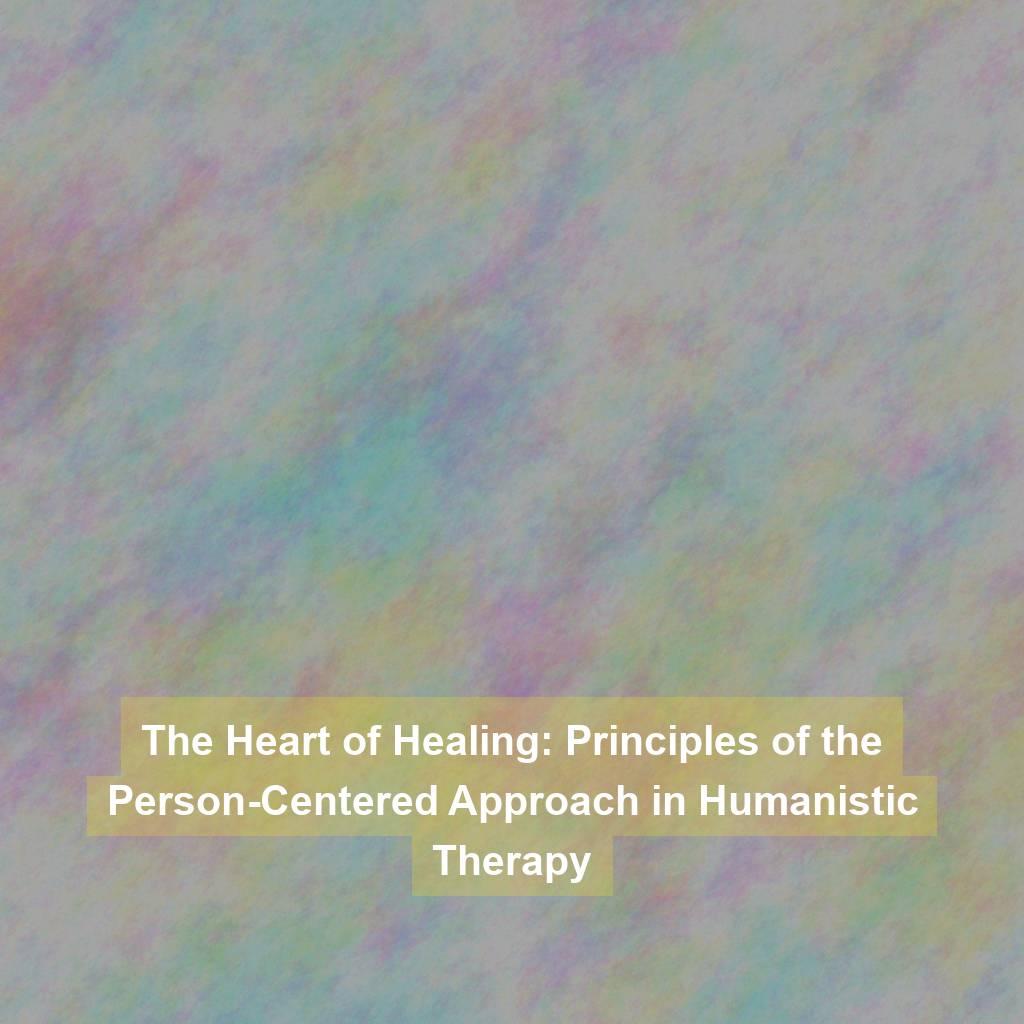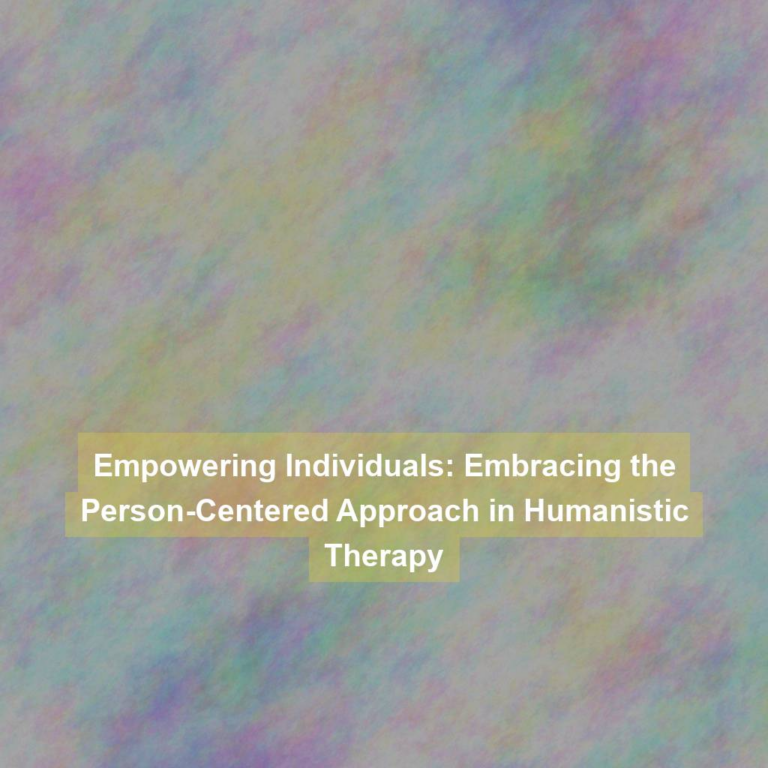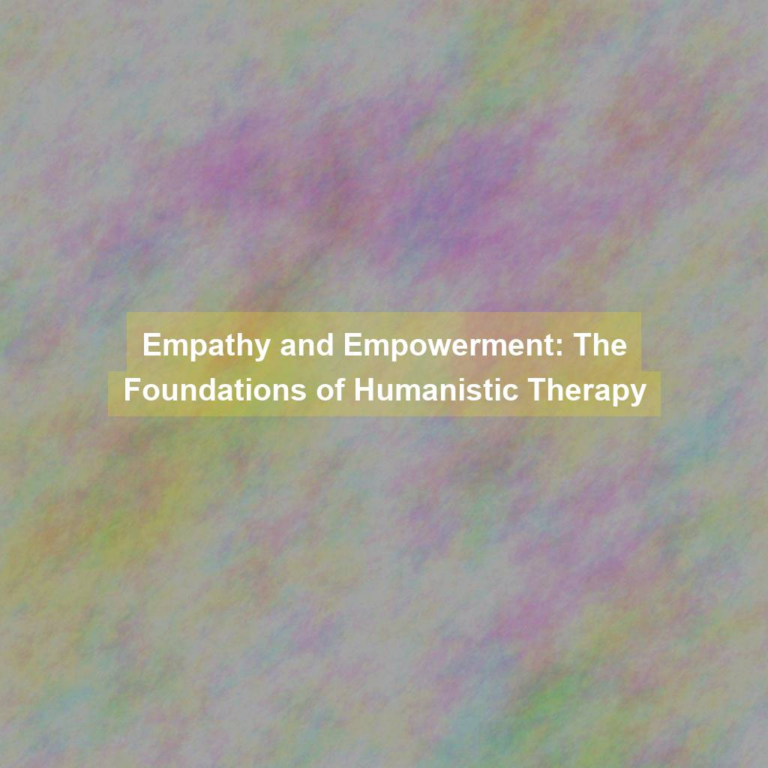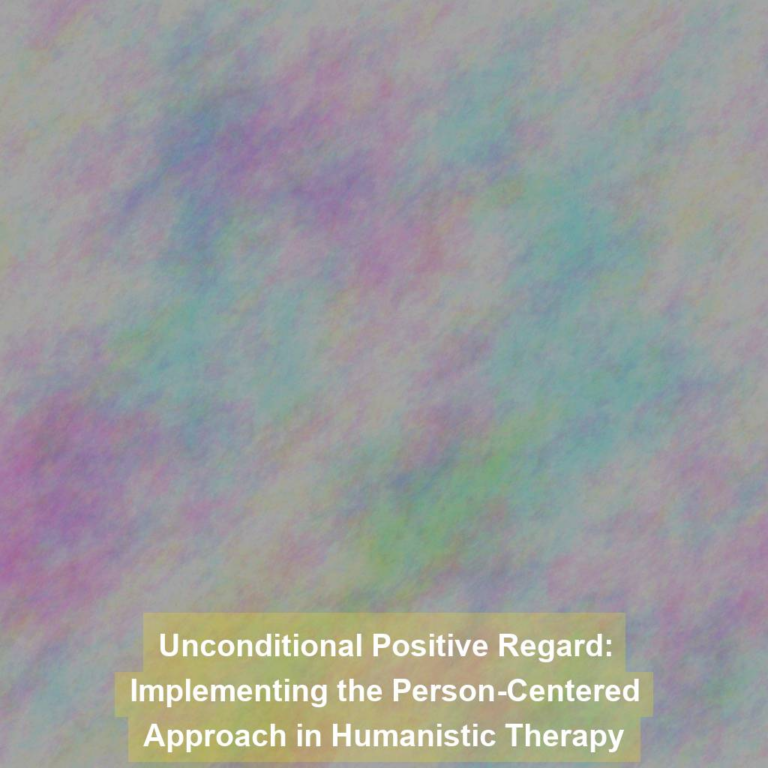In the world of therapy, the person-centered approach is often likened to a warm embrace, offering a safe space for individuals to explore their innermost thoughts and feelings. As you consider the principles of humanistic therapy, you may find yourself intrigued by the profound impact of Carl Rogers’ groundbreaking work in this field.
But what truly lies at the heart of healing within this approach? The answer may lie in the transformative power of the therapeutic relationship, the significance of empathy in the healing process, and the concept of unconditional positive regard. These core principles carry the potential to reshape one’s understanding of healing and self-discovery, offering a new lens through which to view the human experience.
Carl Rogers and the Person-Centered Approach
If you want to understand humanistic therapy, you must first grasp Carl Rogers’ influential person-centered approach. Rogers, a pioneering psychologist, believed that individuals have an innate drive towards personal growth and self-actualization. His approach emphasizes the importance of empathy, unconditional positive regard, and genuineness in therapeutic relationships. In person-centered therapy, the focus is on the client’s subjective experience, with the therapist providing a supportive and nonjudgmental environment for self-exploration.
Rogers emphasized the concept of congruence, where the therapist’s genuine and transparent nature fosters trust and openness in the therapeutic relationship. This approach empowers clients to explore their feelings, thoughts, and behaviors in a safe and accepting space, ultimately promoting personal growth and self-awareness.
Central to Rogers’ approach is the belief in the client’s capacity for self-direction and self-understanding. By providing empathy and unconditional positive regard, therapists facilitate the client’s journey towards self-discovery and autonomy. This person-centered approach has had a profound impact on humanistic therapy, shaping the way therapists engage with and support their clients in their quest for personal growth and fulfillment.
Core Principles of Humanistic Therapy
The core principles of humanistic therapy emphasize fostering a supportive and nonjudgmental environment for clients to explore their subjective experiences and promote personal growth. This approach places a strong emphasis on the individual and their unique needs, focusing on the present moment rather than delving extensively into past experiences. Humanistic therapy is rooted in the belief that individuals have the capacity for self-awareness, self-direction, and positive growth given the right conditions.
One of the core principles is unconditional positive regard, where the therapist accepts and supports the client without judgment. This creates a safe space for clients to explore their thoughts and feelings openly. Another key principle is empathy, where the therapist strives to understand the client’s experiences from their perspective, fostering a deep connection and trust. Additionally, humanistic therapy promotes genuineness, encouraging therapists to be authentic and transparent in their interactions with clients.
The Therapeutic Relationship
Establishing a strong therapeutic relationship is essential for fostering trust and promoting meaningful progress in humanistic therapy. The therapeutic relationship is the foundation of the person-centered approach, emphasizing empathy, unconditional positive regard, and genuineness. As a therapist, you strive to create a safe and nonjudgmental space where clients feel understood and valued. By actively listening and empathizing with your clients, you convey a deep sense of acceptance and empathy, which can lead to significant healing and growth.
In the therapeutic relationship, you prioritize the client’s subjective experience and validate their feelings, thoughts, and struggles. This validation fosters a sense of empowerment and self-discovery, allowing clients to explore their emotions and experiences without fear of judgment. By demonstrating genuine care and respect for the client’s autonomy, you can empower them to take an active role in their own healing process.
Furthermore, the therapeutic relationship serves as a collaborative partnership, where both you and the client work together towards their personal growth and self-actualization. This collaborative nature of the relationship encourages a sense of equality and mutual respect, allowing clients to feel empowered and supported in their journey towards healing.
Empathy in Healing
How can you incorporate empathy into the healing process to create a deeper connection with your clients?
Empathy is a cornerstone of the person-centered approach to therapy and plays a vital role in fostering healing and growth. When you actively listen and seek to understand your clients’ experiences from their perspective, you create a safe and supportive environment for them to explore their emotions and challenges. By demonstrating empathy, you show genuine care and concern, which can help your clients feel validated and understood.
Empathy involves not only understanding your clients’ feelings but also communicating that understanding to them. Reflecting back their emotions and experiences in a non-judgmental and validating manner can help them feel truly heard and accepted. This can lead to a deeper sense of trust and connection, which are essential for the healing process to unfold. Additionally, empathic understanding can empower clients to explore their inner world more freely, leading to insights and self-awareness that are crucial for healing and personal growth.
Incorporating empathy into your therapeutic practice can create a profound impact, fostering a healing process that’s grounded in compassion, understanding, and genuine human connection.
Unconditional Positive Regard
Incorporating empathy into your therapeutic practice can lead to a deeper understanding and connection with your clients, laying the foundation for fostering unconditional positive regard.
Unconditional positive regard is the fundamental concept in person-centered therapy, emphasizing the therapist’s nonjudgmental acceptance and support for the client. It involves conveying a genuine care and respect for the client as a person, irrespective of their thoughts, feelings, or actions.
By embodying an attitude of unconditional positive regard, you create a safe and nurturing space for your clients to explore their inner experiences without fear of rejection. This unconditional acceptance allows clients to engage in self-exploration and personal growth, paving the way for healing and positive change.
It’s important to remember that unconditional positive regard doesn’t mean you have to agree with everything your client says or does, but rather, it involves valuing and honoring their intrinsic worth as a human being.
Conclusion
In conclusion, the person-centered approach in humanistic therapy, pioneered by Carl Rogers, emphasizes the importance of the therapeutic relationship, empathy, and unconditional positive regard in the healing process.
By prioritizing the individual’s unique experiences and feelings, this approach aims to empower clients and promote self-discovery and growth.
Through these core principles, humanistic therapy seeks to create a supportive and non-judgmental space for clients to explore and address their psychological and emotional needs.







